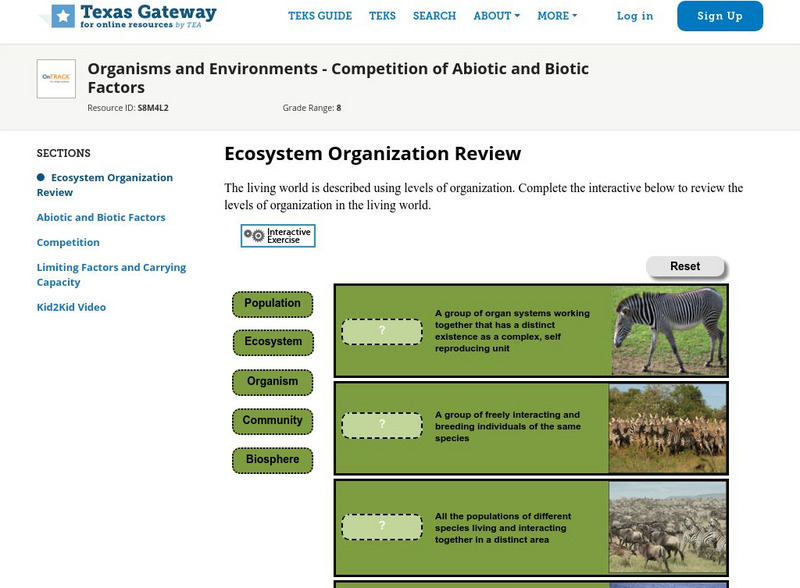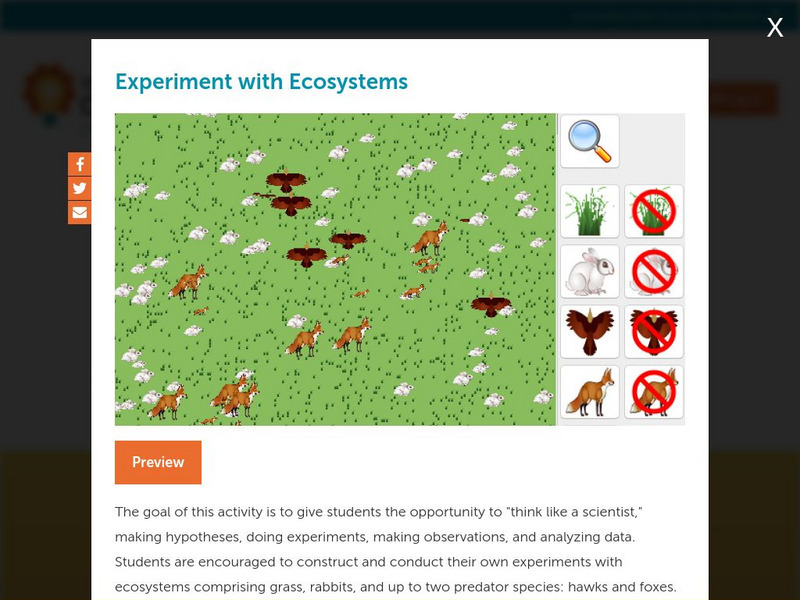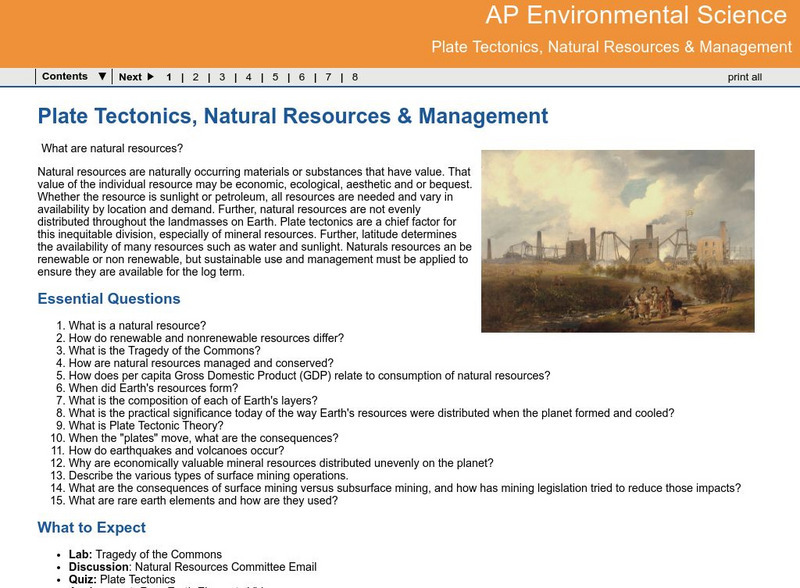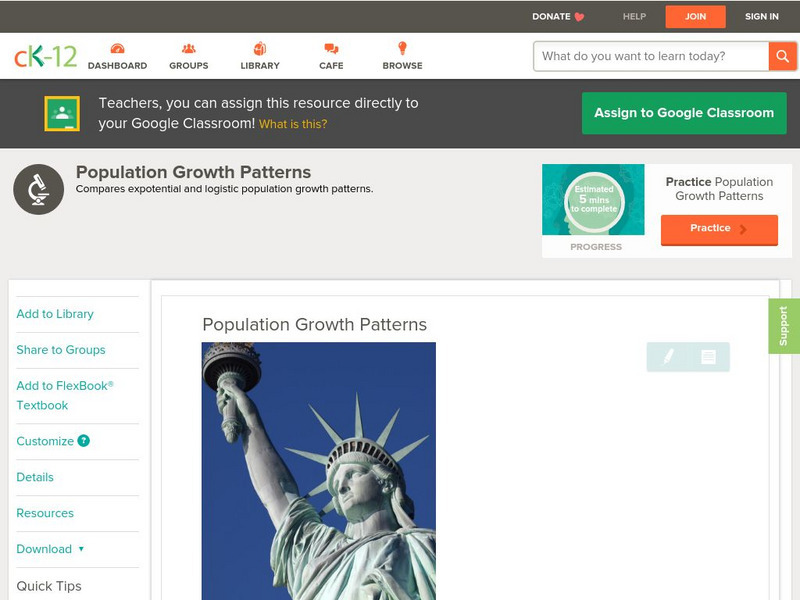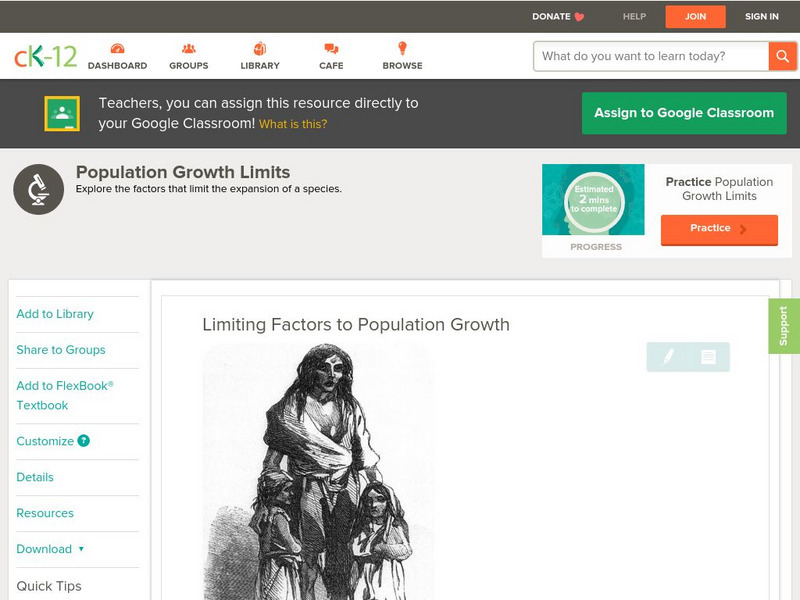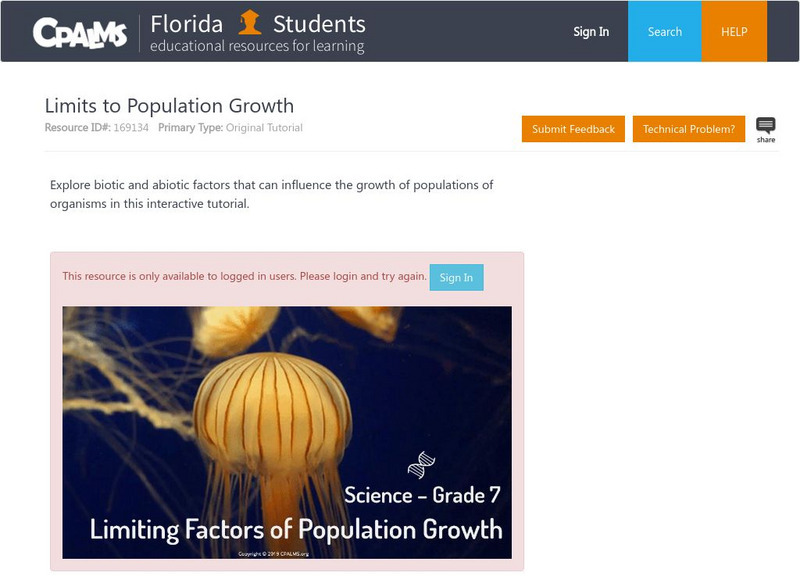National Academies of Sciences, Engineering, and Medicine
The National Academies: Our Energy Sources
The many sources of energy production in the United States are described in this overview. Included are traditional sources, renewable sources, and new energy production technologies.
Annenberg Foundation
Annenberg Learner: The Habitable Planet: Ecology Lab
Create the parameters of your own ecosystem by choosing which producers and consumers live there. Visualize how the food web operates and species populations change. This simulator mimics the food web within a typical ecosystem and gives...
Texas Education Agency
Texas Gateway: Competition of Abiotic and Biotic Factors
This tutorial explores abiotic and biotic factors with videos and interactive activities.
Concord Consortium
Concord Consortium: Stem Resources: Experiment With Ecosystems
Learn what happens to different populations of organisms as their ecosystem changes. Design your own experiment and make your own guesses with what the result will be with this virtual ecosystem. Also experiment with producer/consumer...
Other
Wuppertal Institute: Towards a Global Energy Transformation [Pdf]
This study analyzes the deepening crisis in the availability of global energy resources and looks at ways to transform how we produce and use energy in order to create a sustainable development model. They state that "Socially just and...
Georgia Department of Education
Ga Virtual Learning: Ap Environmental Science: Plate Tectonics,natural Resources
Through interactive activities and readings, students learn that natural resources can be renewable or nonrenewable, but sustainable use and management must be applied to ensure they are available for the long term.
CK-12 Foundation
Ck 12: Episd: Limiting Factors to Population Growth
[Free Registration/Login may be required to access all resource tools.] Recognize limiting factors to the population growth and understand how the factors influence the growth in poplution.
Other
The World Counts: Are We Using Up More Than What Is Available?
A snapshot of what the world would be like if it lost crucial natural resources such as water, oil, and trees. Lists the causes and consequences, and ways people can make a difference.
Other
Biology Discussion: Natural Resources: Depletion Reasons, Types and Conservation
Discusses how the the natural resources of the world are being depleted at an alarming rate, and that humans depend on them for their survival. Elaborates on four main causes of resource depletion, and initiatives that could help to...
CK-12 Foundation
Ck 12: Earth Science: Population Size
[Free Registration/Login may be required to access all resource tools.] How environmental factors put limits on population sizes.
Energy4Me
Energy4me: Sustainability
Find out how sustainability plays a role in the goal of global energy efficiency.
CK-12 Foundation
Ck 12: Earth Science: Availability of Natural Resources
[Free Registration/Login may be required to access all resource tools.] Explores some of the factors that affect the cost of resources, such as availability, ease of extraction, and politics.
CK-12 Foundation
Ck 12: Life Science: Population Growth Patterns
[Free Registration/Login may be required to access all resource tools.] What does population growth mean? You can probably guess that it means the number of individuals in a population is increasing. The population growth rate tells you...
CK-12 Foundation
Ck 12: Life Science: Limiting Factors to Population Growth
[Free Registration/Login may be required to access all resource tools.] For a population to be healthy, factors such as food, nutrients, water and space, must be available. Limiting factors are resources or other factors in the...
CPALMS
Florida State University Cpalms: Florida Students: Limits to Population Growth
Explore biotic and abiotic factors that can influence the growth of populations of organisms in this interactive tutorial.




